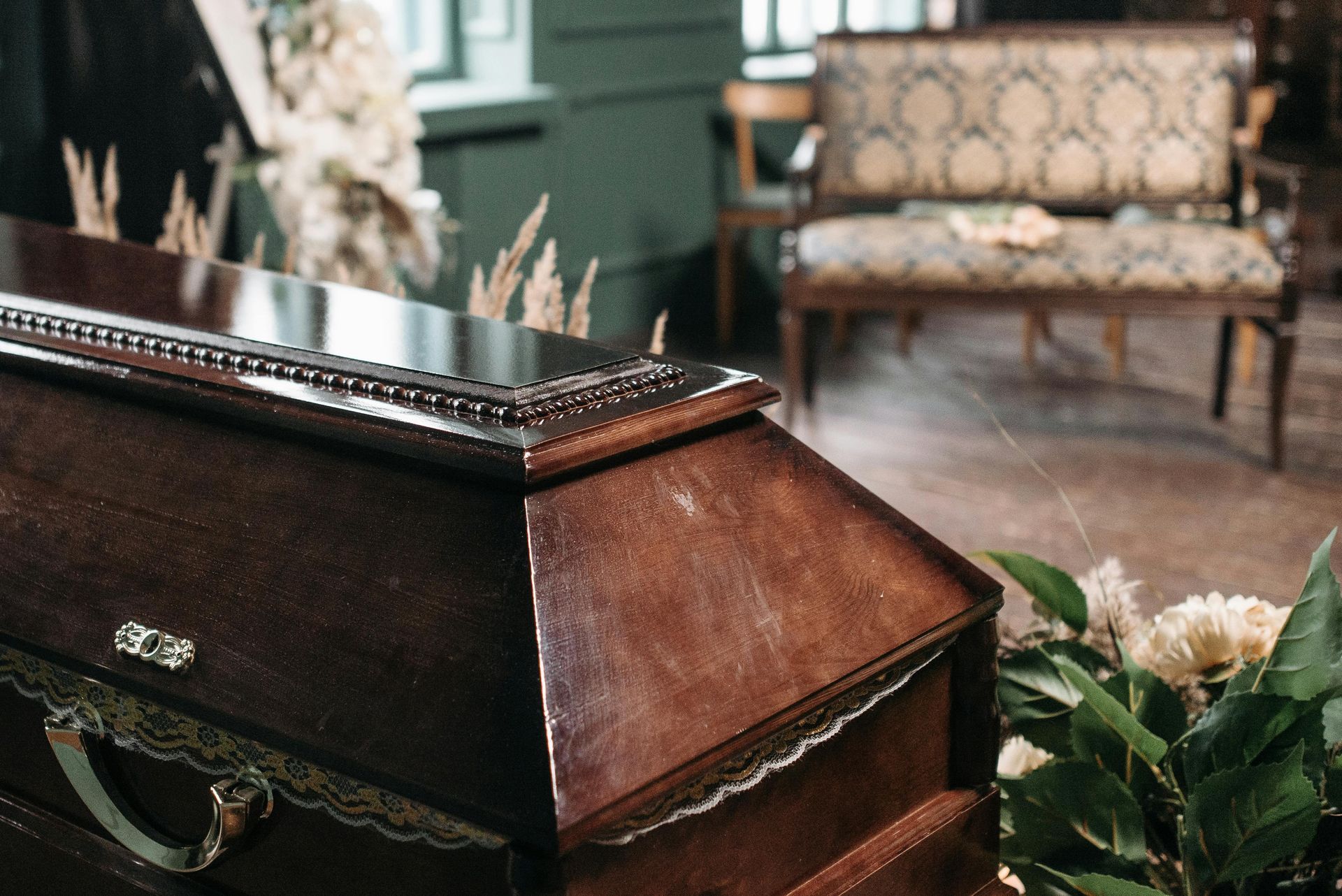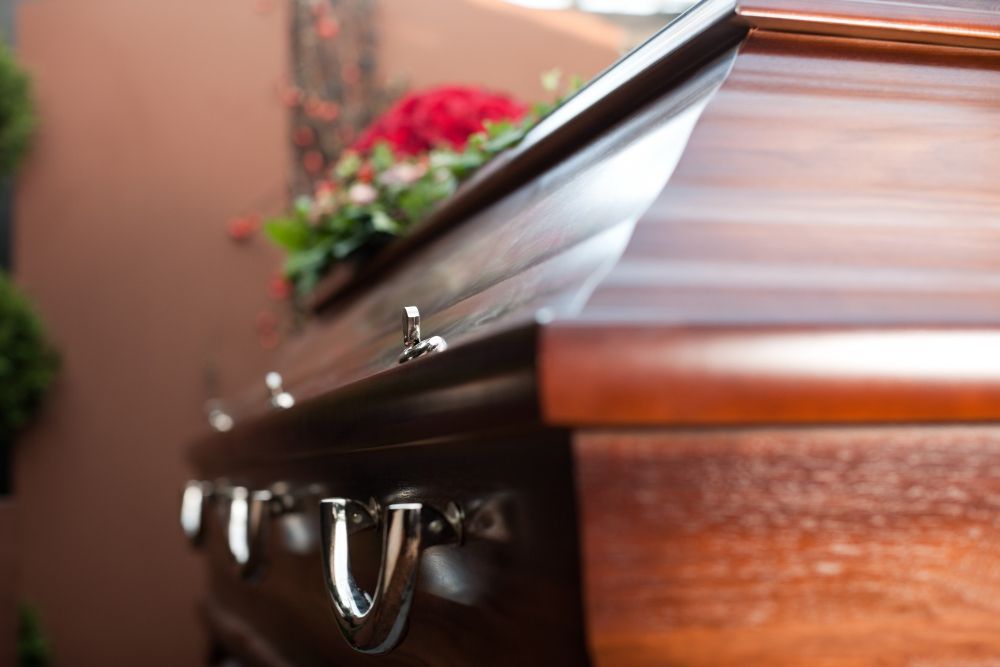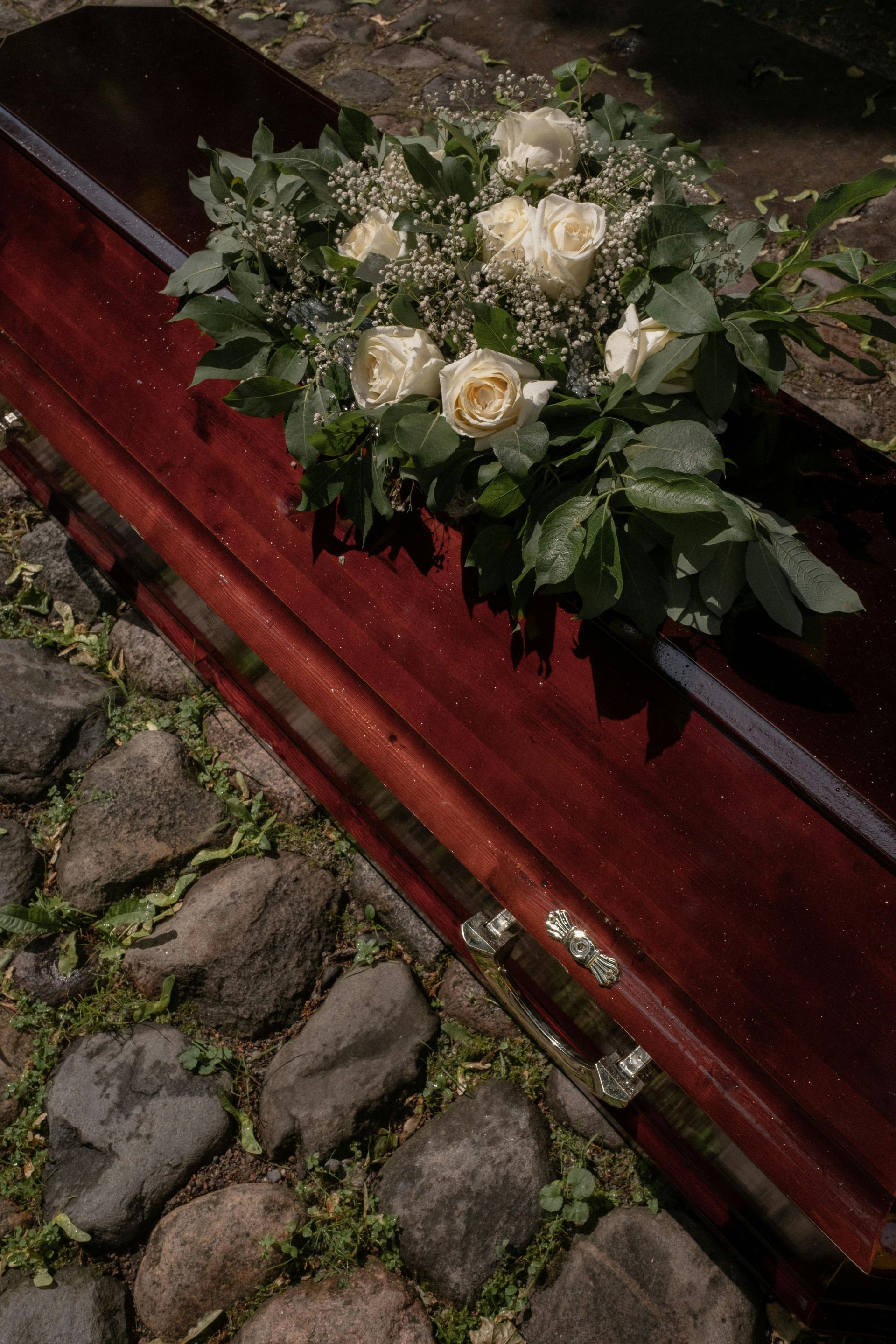
When it comes to saying goodbye to a loved one, the type of funeral you choose can be as unique as the individual being honoured. As funeral customs evolve, many people find themselves deciding between a traditional funeral and modern alternatives. Understanding these options can help you create a service that best reflects your loved one’s life and wishes
Traditional Funerals
Traditional funerals follow well-established customs and typically include several key elements. These ceremonies often reflect the cultural or religious beliefs of the deceased and are centred around a viewing, a service, and burial.
Key Aspects of Traditional Funerals:
- Visitation or Wake: An opportunity for friends and family to gather, pay their respects, and view the body in a casket. It can be held in a funeral home or family home.
- Religious or Secular Service: A structured service led by a religious leader or celebrant, which may include prayers, readings, and eulogies.
- Burial: After the service, the body is buried in a cemetery, often following long-standing customs within a religious or family tradition.
- Rituals and Traditions: Many families appreciate the formality and rituals that come with traditional funerals, which offer a sense of structure and comfort during a difficult time.
Pros of Traditional Funerals:
- Provides a familiar, time-honoured way to say goodbye.
- Offers a structured environment for grieving.
- Often aligns with cultural or religious values.
Cons of Traditional Funerals:
- Higher costs due to embalming, caskets, and burial plots.
- Can feel impersonal or rigid, especially for those seeking a more customised tribute.
Modern Funerals
Grave visits often provide a serene environment for quiet contemplation, which can foster emotional healing. The ritual of visiting the resting place of a loved one gives space for reflection, whether on life, death, relationships, or personal growth. In this calm, reflective setting, many find solace and peace during difficult times.
Modern funerals break away from tradition, offering flexibility and personalisation. These alternatives can reflect the deceased's lifestyle, beliefs, and values, often providing a more relaxed and intimate atmosphere.
Key Aspects of Modern Funerals:
- Cremation: Becoming increasingly popular, cremation offers flexibility for how and when to hold a service. Ashes can be kept, scattered, or buried in a memorial garden.
- Celebration of Life: Rather than mourning a loss, these ceremonies focus on celebrating the deceased’s life. The atmosphere is typically upbeat, with personalised elements such as music, photo displays, and storytelling.
- Green Funerals: For those concerned with environmental impact, green funerals emphasise sustainability. Bodies are buried without embalming chemicals in biodegradable caskets, and cremation ashes may be planted with a tree or scattered in a natural setting.
- Direct Burial or Cremation: A cost-effective and minimalist option, direct burial or cremation skips the traditional service in favour of an immediate burial or cremation, with a memorial held at a later date if desired.
Pros of Modern Alternatives:
- Greater flexibility in terms of ceremony style and timing.
- More affordable options like cremation or direct burial.
- Ability to reflect the deceased’s personality and values more uniquely.
Cons of Modern Alternatives:
- May lack the structure some families find comforting.
- Limited opportunities for gathering or viewing the body before cremation or burial.
Making the right choice.
Choosing between a traditional funeral and a modern alternative depends on several factors, including the wishes of the deceased, your family’s values, and budget considerations.
- Respect for Wishes: Did your loved one express any specific wishes regarding their funeral? Some people have a clear idea of what they want, and respecting those wishes can bring peace of mind.
- Cultural or Religious Beliefs: Traditional funerals often hold deep meaning within religious or cultural contexts. If this is important to your family, a traditional service may provide comfort and familiarity.
- Budget: Funerals can be expensive, with traditional funerals generally costing more due to embalming, caskets, and burial fees. If finances are a concern, modern alternatives can offer a more affordable yet meaningful option.
- Personalisation: If you’re looking for a way to truly reflect the personality and values of your loved one, modern funerals offer more room for creativity and personalisation. Whether it’s a themed celebration or a simple, eco-friendly service, these alternatives allow you to create something unique.
Final thoughts
Whether you opt for a traditional funeral or a modern alternative, the most important thing is that the service reflects the life and wishes of the person being honoured. Both approaches offer meaningful ways to say goodbye and provide comfort to those left behind. By considering the deceased’s wishes, your family’s values, and your budget, you can choose the type of funeral that feels right for your loved one and provides the closure and remembrance your family needs.
How else can we help?
Can’t find what you’re looking for?
We’re happy to answer any questions you have. Just drop us a line, or give us a call.
01902 246 040 // 81 Tempest Street, Wolverhampton, WV2 1AA
Tailored Funerals. All Rights Reserved | Privacy Policy | Terms of Business




